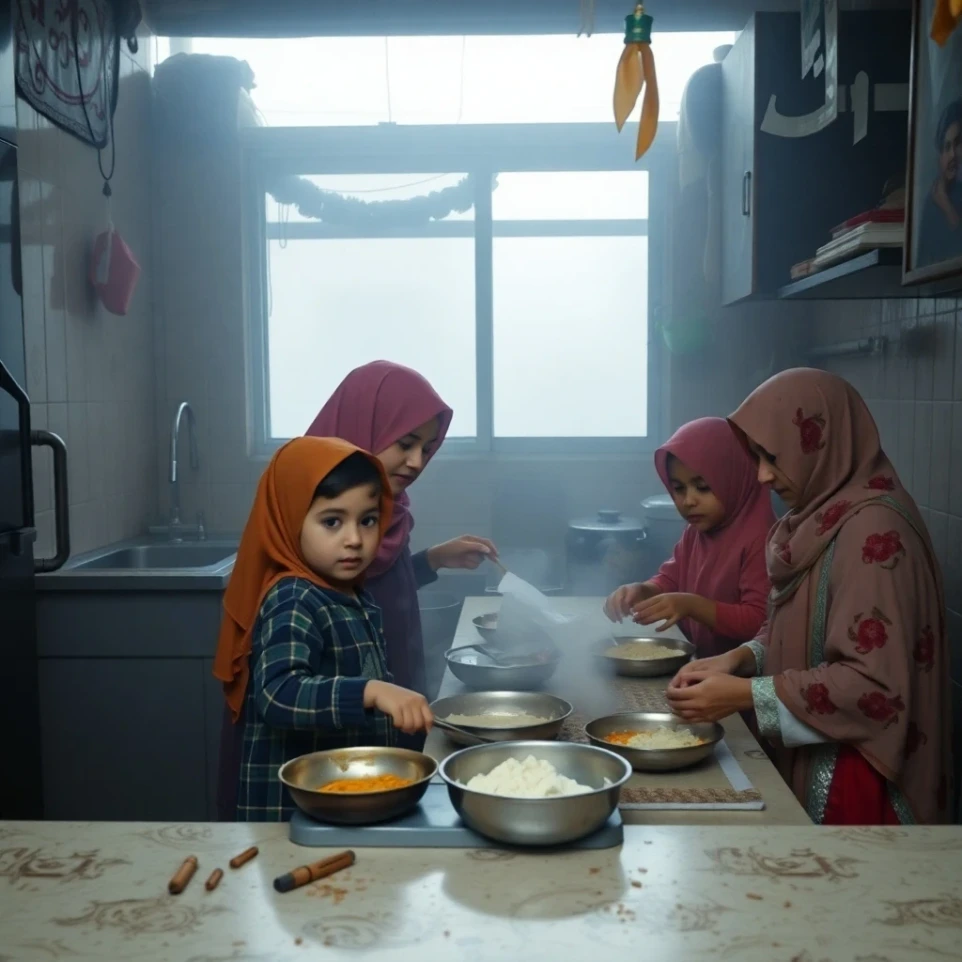Strengthening Bonds During Ramadan with Family
Strengthening Bonds During Ramadan with Family Ramadan presents Muslims with more than fasting and devotion because it serves as an exceptional chance to develop family bonds. Throughout the holy month, families discover distinct ways to unite, which deepens their religious ties and creates a patient-loving environment with shared accountability. Ramadan stands as an essential moment that helps families bond deeply as they support each other through mutual faith renewal during personal growth sessions. This article examines how Ramadan enhances familial connections by discussing the rituals that create a transformative bond between family members.
The Spiritual Connection of Ramadan

The centerpiece of the holy month of Ramadan entails the practice of fasting, which demands believers to exercise control while they reflect and demonstrate endurance. Muslims keep themselves from food and beverages from sunrise to sunset as part of their daily fasting practice while they devote their energy to spiritual connection with God. The celebration combines personal cleansing with deep spiritual contemplation and community spirit via religious practices including prayer, charity work, and awareness of divine blessings.
The fundamental message of Ramadan depends on establishing community bonds among family members who come together to share prayers and eating experiences and mutual activities. The month presents everybody with essential time to develop stronger bonds with God as well as fellow human beings. Belonging to a family unit that practices joint fasting, breaks fasting together, and shares spiritual practices results in stronger family bonds because each member shares in a unified purpose.
The Importance of Shared Iftar Meals

During Ramadan, families come together to organize an iftar, which marks the sunset-fast-breaking ritual. The iftar period enables us to provide our bodies nourishment as well as strengthen our connections with others. People from the same family gather inside the house to prepare their dinner meals, exchange stories, and create special memories, which become classic family traditions. Food preparation for evening meals allows families to bond together while children learn culinary skills from their parents, who demonstrate generous habits by making abundant meals for their neighbors and extended relatives.
At the end of each daily fast, Muslim families find exceptional unity during Iftar meals when everyone reunites. During iftar in most Muslim homes, the dining table displays multiple foods, including dates and soups with fruits, bread, and meat items. During Ramadan, the tradition of eating together creates solidarity between family members since it reminds everyone about the significance of being together during this special month.
The wait for iftar alongside participation allows children to develop patience, which deepens their feelings of gratitude. Certain families take care to prepare their iftar meals while also actively inviting both relatives and resident neighbors who fast by themselves. The creation of such an environment promotes unity and kindness across the family boundaries.
Taraweeh Prayers: A Time for Family Worship
Chairing Taraweeh prayers marks an essential family practice that people perform every evening during the period of fasting. When family members perform Taraweeh prayers, they select their home or mosque depending on whether their children attend or not. People who join together for prayers after a fasting day strengthen their connection through shared spiritual experiences.
Through this collective worship, people recall the profound spiritual connection all Muslims have during Ramadan. Parents should work with their children through prayer, teaching them about the significance of this ceremony and encouraging them to think about their connection with God. Participating in home mosque activities, even when family members cannot physically be together, fosters a sense of unity and shared commitment to spiritual growth.
Family time during Taraweeh prayer allows members to share meaningful discourse that focuses on faith and spiritual development. Parents should utilize this time to explain to their young children the essential values of Ramadan and describe the deeper significance fasting has together with prayer and charitable giving. The family receives intensive spiritual growth through this nurturing environment built by prayer at home.
Acts of Charity: Teaching Children the Importance of Giving

During Ramadan, families actively teach children through charitable practices about community service while developing their skills in supporting others. During Ramadan, Muslims must perform zakat, which stands as a charitable donation because the Islamic teachings define it as one of five fundamental principles. In addition to the zakat requirements, families expand their charitable activities by providing aid through food donations, distributing clothes, and dedicating time to serve disadvantaged communities throughout Ramadan.
Children who participate in charitable activities learn empathy and build essential values of kindness as well as humility and the practice of assisting others. Family traditions dedicated to charities, such as food bank volunteering, charity drives, and meal delivery to disadvantaged people, strengthen family bonds while reinforcing common values between parents and children.
The process of joint support for needy individuals reveals to families their personal blessings, which strengthens their sense of gratitude and humility. The spiritual value of Ramadan increases through family charity activities, which build a compassionate family environment.
The Positive Impact of Family Time During Ramadan
The practice of Ramadan stimulates families to dedicate more time to one another through food preparation, worship, and benevolent works. Shared Ramadan experiences create stronger bonds between family members because they develop community spirit and deep relational ties. During Ramadan, people adopt a slower lifestyle dedicated to religious observance, which makes them experience and value their time spent with family members.
Family members have more possibilities to maintain relationships because shared religious traditions receive primary emphasis during Ramadan. During iftar time, parents tend to share more hours with their offspring while conducting meaningful dialogues after performing the evening prayer. Such strong interpersonal bonds created during this time lead to better family relationships along with enhanced communication while building improved emotional attachments.
The practice of Ramadan develops patience, which stands as an important trait for family life. Through fasting, people learn to maintain emotional self-control as well as responsible emotional management skills that lead to enhanced family connections. When families participate in Ramadan, it leads them to show greater understanding as well as forgiveness and care toward each other, thus creating stronger bonds.
4 Frequently Asked Questions (FAQs)
The conclusion shows how Ramadan makes family ties stronger.
During Ramadan, families receive an exceptional chance to unite through prayer, which leads to building stronger, more meaningful family connections. Family life during Ramadan deepens when members come together to share food while praying together and showing charity to others as well as spending time in contemplation. During this holy month, families develop both their spiritual connections and lasting precious moments that establish enduring foundations of love and gratitude beyond Ramadan.







